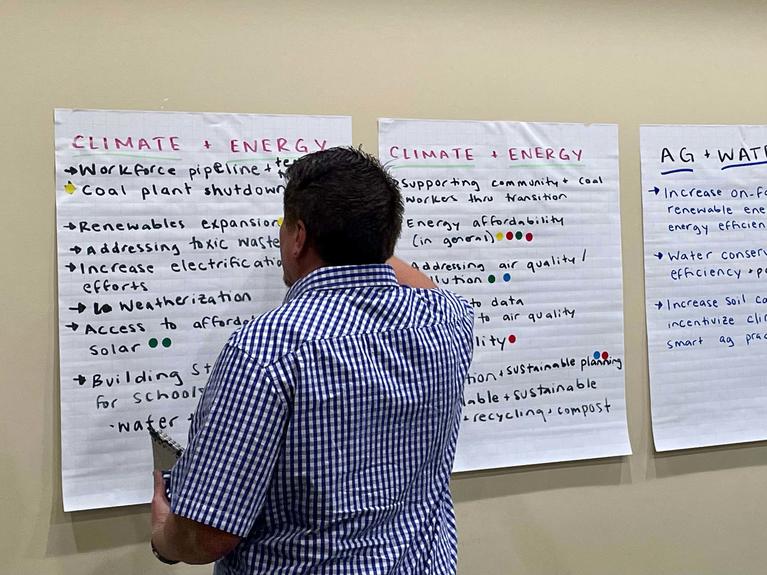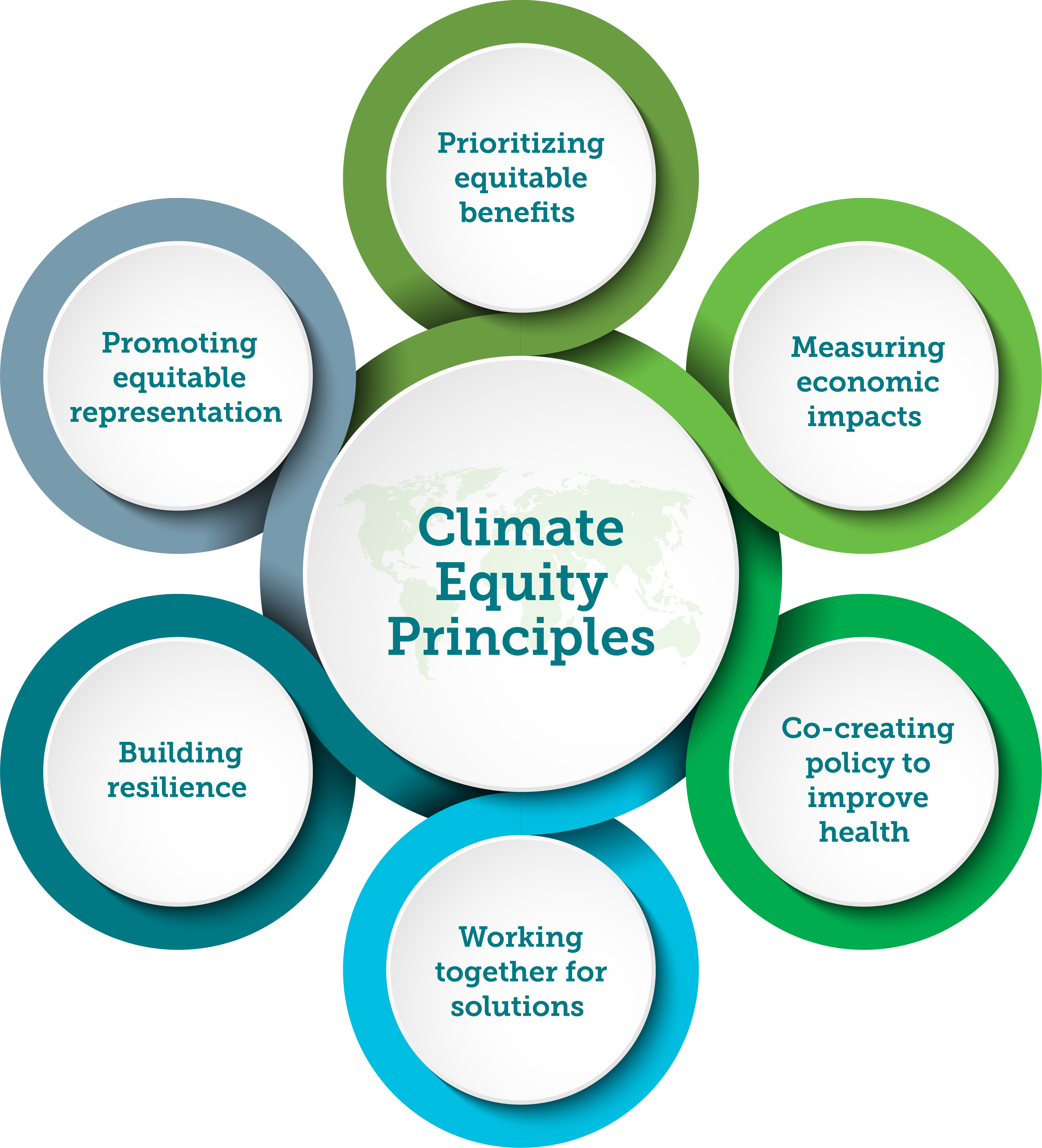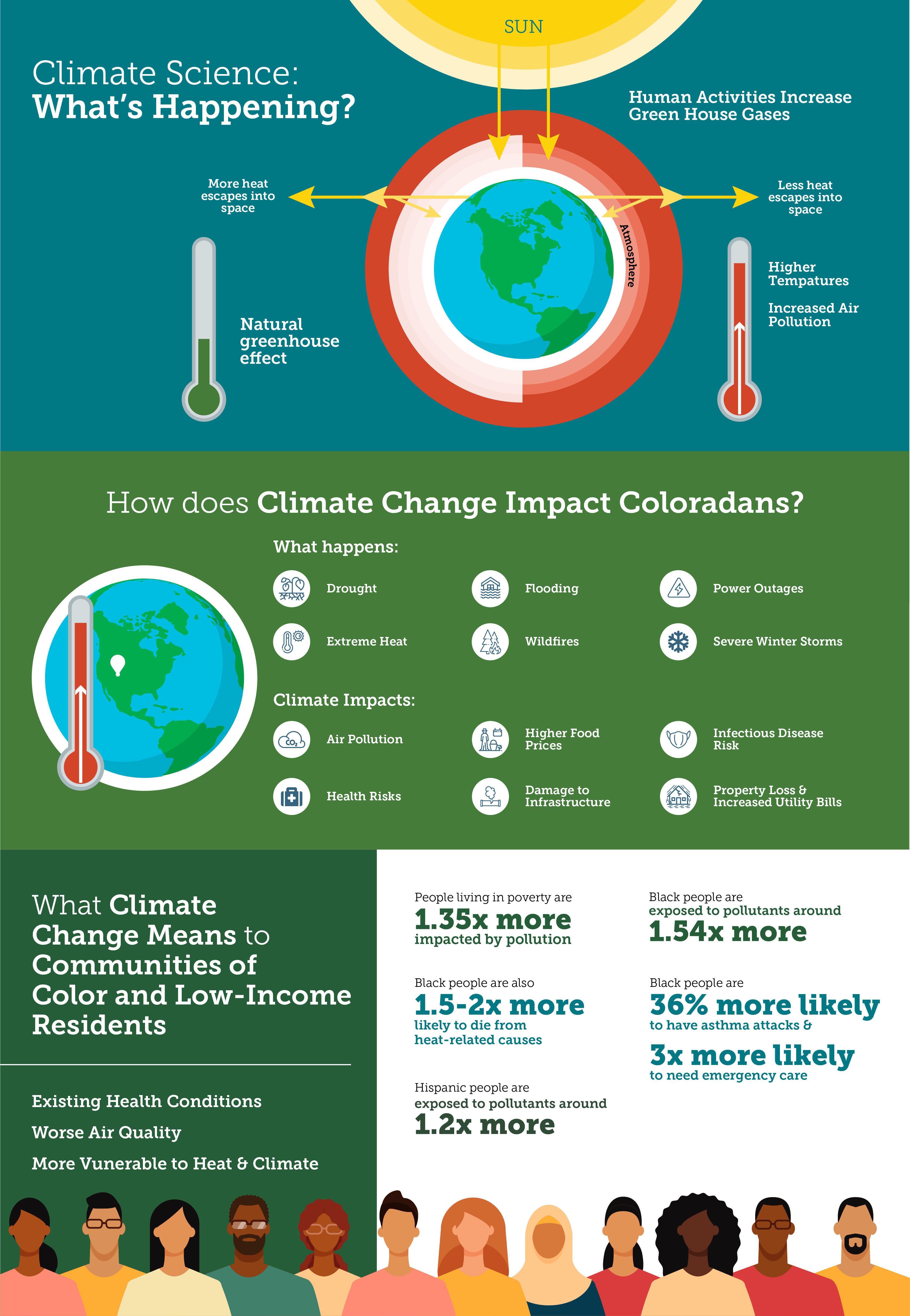
Energy and Social Justice
The Relationship Between Energy & Social Justice
Health Risks, Social Inequities, and a Plan to Address Them
Pollution and rising temperatures impact some Colorado communities more than others, particularly low-income communities of color. It is crucial that we recognize the link between climate change, energy, and social justice while working towards solutions that prioritize benefits in disproportionately impacted communities.
How Greenhouse Gas (GHG) Emissions Affect Health and Society
When we use fossil fuels to generate electricity, heat buildings, make products, and power vehicles, we release emissions into the atmosphere. These emissions not only cause climate change, but also worsen air quality and endanger our health.
People who live in areas with poor air quality are more vulnerable to the health effects of climate change. This is especially true if they have pre-existing medical conditions. Rates of heart disease, diabetes, asthma, and chronic obstructive pulmonary disease are disproportionately high in marginalized communities. These heightened rates are due to consistent exposure to environmental hazards and lack of access to health care and nutritious food.
Power plants, industrial facilities, landfills, and major highways have historically been built in or near marginalized communities due to racist zoning laws starting in the 1930s, known as redlining. As a result, more people of color live in heavily polluted places.
Marginalized communities are also particularly at risk from extreme weather events like extreme heat, wildfires, and flooding due to inadequate housing, aging infrastructure, and historic underinvestment. Residents of these communities may lack adequate healthcare, medicines, health insurance, and access to public health warnings.
How Colorado Prioritizes Environmental Justice
As Colorado moves toward a clean energy future, we must include disproportionately impacted communities in decision-making processes and enact policies that ensure all Coloradans benefit from this transition.
Energy justice refers to the goal of achieving equal participation in the energy system across class and social groups. The State’s energy justice initiatives include:
- Addressing the social, economic, and health burdens on people the energy system has historically harmed ("frontline communities")
- Explicitly centering the concerns of marginalized communities
- Aiming to make clean energy more accessible and affordable for all Coloradans
- The principles of environmental justice are core to the clean and prosperous future we envision for Colorado.
There is a lot of work to do to meet our goals. Our climate equity principles are:

Building Climate Equity in Colorado
Further, we are committed to practices that build climate equity. Actions we take to build a shared, equitable clean energy future include:
- Improved data collection to identify gaps in service and program benefits
- Authentic relationship and trust building efforts
- A commitment to meet the community where they are
- Fair compensation for input on program design and development
- Accessibility
- Language justice
- Outreach & Engagement
- Education
- Equity-focused incentives
